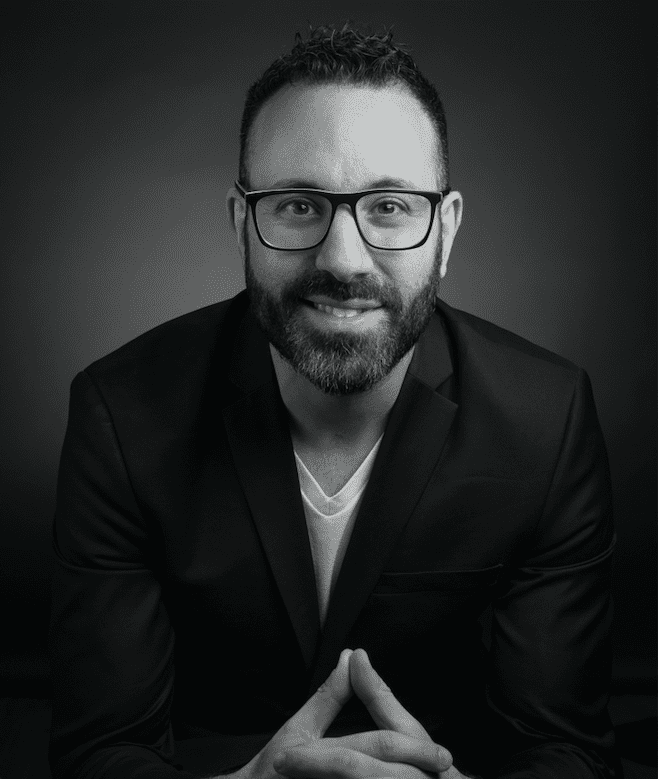By Sofia Thornblad
Almost three-quarters of a century have passed since the liberation of Auschwitz and the end of World War II. Some 245,000 Holocaust survivors are still alive, but the few who can speak with the force of first-hand perception will soon be gone. How will Holocaust remembrance and education change once those who were alive to witness it are no longer with us?
Danny M. Cohen, Ph.D., has long grappled with this question. The grandchild of a Holocaust survivor, Cohen is now a professor at Northwestern University in the School of Education and Social Policy and The Crown Family Center for Jewish and Israel Studies. He is also an author; his historical novel, Train, was selected as the inaugural text of the national Teacher Fellows Program of the United States Holocaust Memorial Museum.
Cohen will visit Tulsa on May 9 as the featured speaker for the 26th annual Yom HaShoah: An Interfaith Holocaust Commemoration, co-sponsored by the Tulsa Council for Holocaust Education of the Jewish Federation of Tulsa, The Sherwin Miller Museum of Jewish Art and the Tulsa City-County Library. Sofia Thornblad, chief curator and director of collections and Holocaust education at Sherwin Miller, spoke with Cohen prior to his visit.

Photos courtesy Tulsa City-County Library
S: When and how did the Holocaust become a focus of your work?
D: I grew up in the British Jewish community and, in my late teens, I fell into informal Jewish education, which naturally included leading programs about Holocaust history and memory. I was passionate about social justice, and I got a job as a youth worker in inner-city London. But when I designed a human rights youth program to address connections between different forms of prejudice, I was told to remove all references to the Holocaust and antisemitism. It was shocking, honestly. And this is when I said to myself: There are people in powerful positions who want to silence Holocaust history. By my mid-20s, I was studying the design of Holocaust education, the design of memorials and museums, and I soon fell into writing about the Holocaust as a way to reach teen audiences.
S: You are a third generation survivor. How has that impacted you, in particular your work?
D: My grandfather escaped Nazi-occupied Amsterdam, but we don’t know much about his experiences during the war, because he was one of the many survivors who rarely spoke openly about his memories. He died before I was born. We think that the Nazis deported most of his extended family eastward, most likely to Auschwitz-Birkenau and Sobibor, but we might never know for sure. By the time I was working on my doctorate, my research focused on marginalized Holocaust histories; the stories that stay in the shadows, maybe because we’re too scared to talk about them. Over the years, I’ve come to see that my own family history is filled with “dead ends” and “hidden stories,” so I guess it’s not surprising that this became the focus of my work.
S: What do you think is most important for young people to know about the Holocaust?
D: When it comes to teaching and learning about any violent history, we can quickly become overwhelmed, and so it’s of course natural to simplify. Good and evil. Victims and survivors. Resistance and complicity. These simplifications can be helpful entry points to history and atrocity, but we can’t get stuck in those simplifications. When we teach about the Holocaust, if a central goal is to learn real lessons for today and to understand how and why people committed and permitted horrific crimes, then we have to ask difficult questions. How could loving parents go along with Nazi ideology and support the systematic murder of Jewish, Roma and disabled children? In the camps, how did the Nazis manage to coerce so many of their prisoners to become participants in the mass-murder of their own communities? How and why do some survivors of genocide hold onto their prejudices against other minority groups? For me, we have to place at the heart of Holocaust education all the complex questions that have no simple answers. This is how we can engage young people in complex questions about our world today.
Yom HaShoah Commemoration
May 9 at 7 p.m.
Congregation B’nai Emunah, Tulsa






















